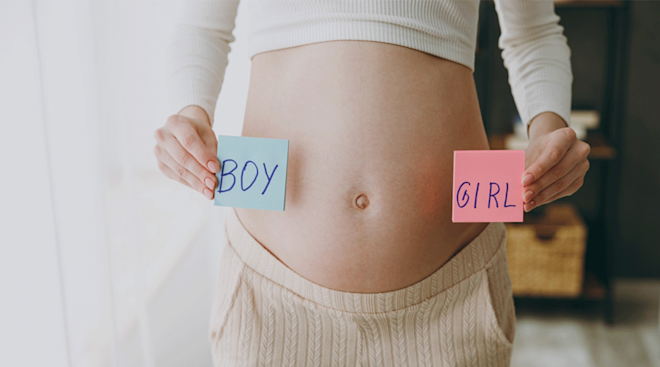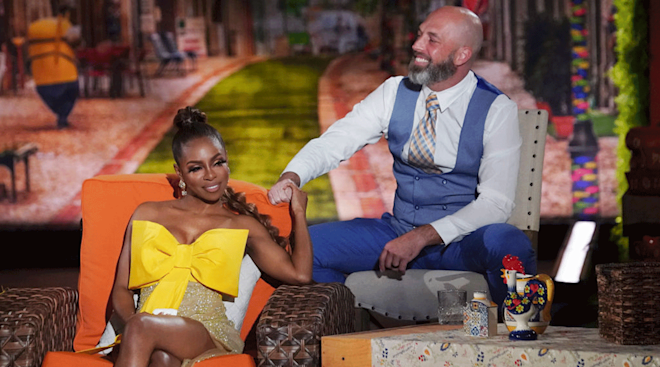How to Deal With Gender Disappointment
There are many reasons new parents might experience gender disappointment—and it’s something people don’t often discuss. “There’s a lot of shame because we’re supposed to feel grateful and blessed,” says Shoshana Bennett, PhD, a clinical psychologist and maternal mental health expert. “We’re supposed to be happy no matter what, so if we’re disappointed, we might not mention it, not even to our friends or our spouse.” If you’re going through this difficult season, you’re not alone. Here, experts explain what you need to know if you find out baby’s sex and it isn’t what you were hoping for, including how to deal with gender disappointment with self-compassion.
“Gender disappointment is a common emotional reaction that some parents experience when their child’s biological sex doesn’t match their expectations,” says Laila Rubin, LCSW, a clinical social worker and mental health therapist in Atlanta. She says it can happen at any point during pregnancy or the postpartum period, and it can manifest in various ways. “Parents may feel sadness, grief, shame, guilt, anger or disconnection from their baby,” she says.
Gender disappointment can happen for a variety of reasons, including:
- Fear. “Some people have preconceived notions that they’d be a better parent for a boy than they would be for a girl or vice versa,” Bennett says.
- Past experiences. “Parents may have miscarried, experienced a stillbirth or lost a child of a particular sex, and may subconsciously hope for their next child to be the same [sex],” Rubin says.
- Gender stereotypes. Maybe you don’t consider yourself a “girly girl,” so you think you might be better off having a boy.
- Cultural expectations. “Some cultures value one sex over another, or limit the number of children that are socially acceptable to have,” says Rubin.
- Pressure from family and friends. Family and friends might pressure you to have a child of a particular sex, says Rubin. Additionally, some people might feel pressure to have a “set”—a boy and a girl—and life just doesn’t always work out that way.
- Personal expectations. Sometimes, parents want a child of a particular sex in an effort to replicate a relationship they had with a parent or child, says Rubin. It can also work the opposite way: If you have a strained relationship with your mother, for example, having a girl might give you anxiety that history will repeat itself with your daughter.
The first step to coping with gender disappointment is realizing that it’s not something to feel ashamed about, and that there are ways to manage it, says Rubin. While everyone experiences gender disappointment differently, these tips could help you deal with it:
- Allow yourself to feel your feelings. Try to acknowledge your feelings without judging yourself, says Renée Goff, PsyD, PMH-C, a licensed clinical psychologist and owner of Orchid Wellness & Mentoring in Cincinnati, Ohio. “Let go of the ‘I should feel’ or ‘I shouldn’t feel’,” she says. “Allow yourself to grieve the future you had hoped for or envisioned.”
- Reflect on the causes. “Take a step back and examine where the disappointment is coming from,” says Goff. “Then, think about what [it means] to you… What do you fear most about having a baby who’s the opposite sex than what you wanted?”
- Talk to someone you trust. Try sharing your feelings with your partner, a close friend or parent, suggests Rubin, keeping in mind that “this might be challenging if they’re also struggling with conception, miscarriage, or have a child with special needs, or if you have complicated relationships with them.”
- Seek out professional help. If gender disappointment is affecting your daily activities and interactions, particularly your ability to bond with or care for baby, you might want to consider seeking professional mental health help, says Goff. “Therapists can help you process your feelings, work through grief and find new ways of confronting realities in a safe, non-judgmental space,” says Rubin.
At the end of the day, gender disappointment is pretty common, says Goff. But that doesn’t mean you have to suffer through it without talking to anyone. If your feelings are affecting your daily life, a therapist can help you work through your experience and move forward. “I try to support my clients in exploring their fantasy, how they could adjust to the reality and new ways of imagining their future,” says Rubin.
Plus, more from The Bump:
Shoshana Bennett, PhD, is a clinical psychologist and maternal mental health expert. She’s the executive producer of maternal mental health documentary Dark Side of the Full Moon and the author of several books on maternal mental health.
Renée Goff, PsyD, PMH-C, is a licensed clinical psychologist and owner of Orchid Wellness & Mentoring in Cincinnati, Ohio. She received her doctor of psychology from Wright State University in Dayton, Ohio.
Laila Rubin, LCSW, is a clinical social worker and mental health therapist in Atlanta. She received her master’s degree in social work from Georgia State University.
Navigate forward to interact with the calendar and select a date. Press the question mark key to get the keyboard shortcuts for changing dates.




















































